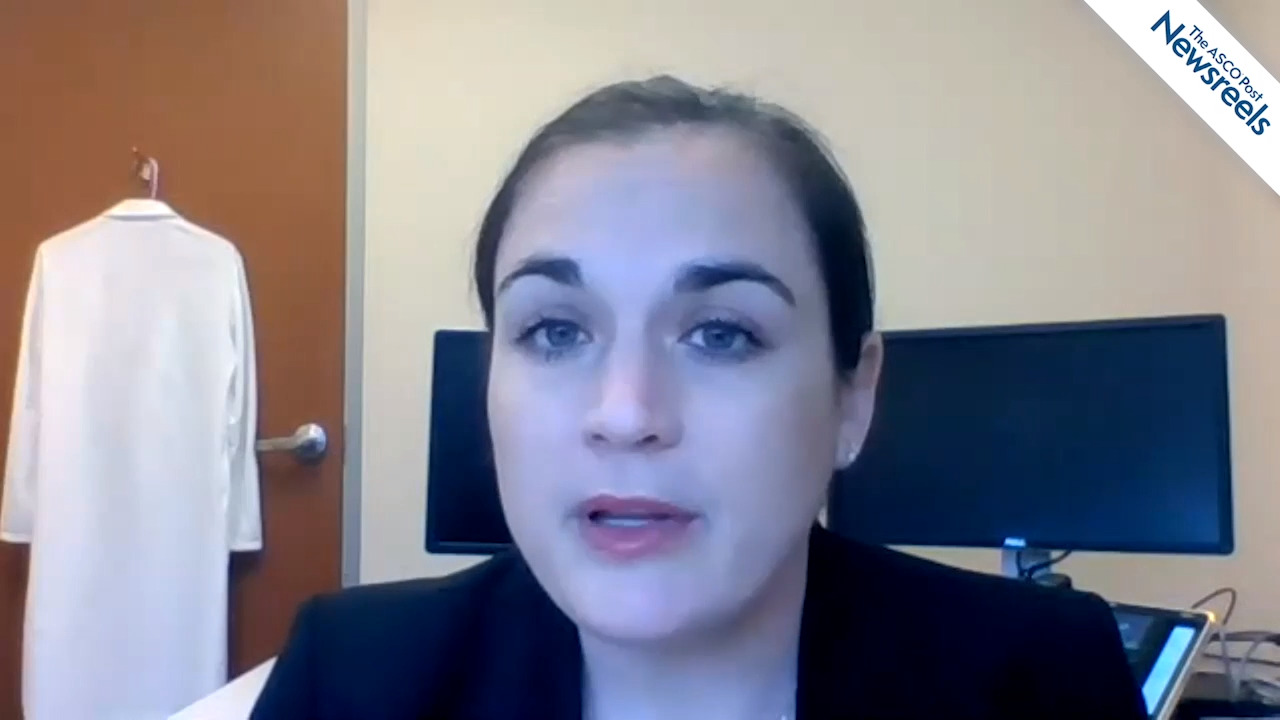Anthony B. Costales, MD, on Advanced Ovarian Cancer: Predicting the Benefits of Minimally Invasive Surgery
SGO 2021 Virtual Annual Meeting on Womens Cancer
Anthony B. Costales, MD, of the Baylor College of Medicine, discusses results from the MIID-SOC trial, which explored the question of whether laparoscopic surgery for removal of ovarian, fallopian tube, or primary peritoneal cancer following neoadjuvant chemotherapy is feasible, safe, and provides similar outcomes as open surgery.
The ASCO Post Staff
Eric Pujade-Lauraine, MD, PhD, of Hôpital Hôtel-Dieu, discusses results from the PAOLA-1ENGOT-ov25 trial on the use of homologous recombination–repair mutation gene panels and whether they can predict the efficacy of olaparib plus bevacizumab in first-line maintenance therapy for patients with ovarian cancer (ID# 10224).
The ASCO Post Staff
Brian M. Slomovitz, MD, of Florida International University, describes how emphasizing diversity and shifting away from clinical trials at universities helped The GOG Foundation, Inc., increase patient accrual by 50% in 2020 (ID # 10215).
The ASCO Post Staff
Amir A. Jazaeri, MD, of The University of Texas MD Anderson Cancer Center, discusses data on the safety and efficacy of adoptive cell transfer using autologous tumor-infiltrating lymphocytes (LN-145) to treat patients with recurrent, metastatic, or persistent cervical carcinoma whose tumors have progressed on prior systemic therapy (ID # 10224).
The ASCO Post Staff
Emily Hinchcliff, MD, MPH, of The University of Texas MD Anderson Cancer Center, discusses phase II results of durvalumab (anti–PD-L1) and tremelimumab (anti–CTLA-4) administered in combination vs sequentially for the treatment of recurrent platinum-resistant non–clear cell ovarian cancer (ID #10240).
The ASCO Post Staff
Andreas Obermair, MD, of the University of Queensland and Queensland Centre for Gynaecological Cancer Research, discusses data on a hormonal IUD used to treat women with the precursor lesion endometrial hyperplasia with atypia (EHA) and those with stage I endometrial adenocarcinoma (EAC). At 6 months, the data showed a complete pathologic response in 82% of patients with EHA and in 43% of those with EAC (ID# 10244).





